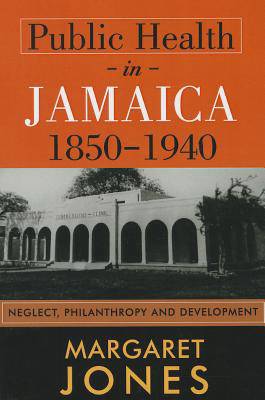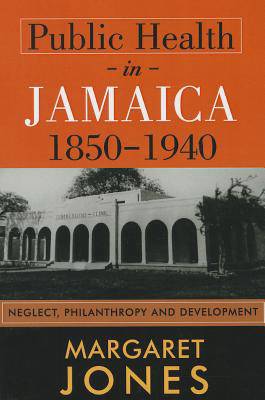
- Retrait gratuit dans votre magasin Club
- 7.000.000 titres dans notre catalogue
- Payer en toute sécurité
- Toujours un magasin près de chez vous
- Retrait gratuit dans votre magasin Club
- 7.000.0000 titres dans notre catalogue
- Payer en toute sécurité
- Toujours un magasin près de chez vous
Public Health in Jamaica, 1850-1940
Neglect, Philanthropy and Development
Margaret JonesDescription
Using a range of primary sources from imperial, colonial and local government records, Rockefeller Foundation Archives, memoirs and reports, this study provides the most comprehensive account to date of public health in Jamaica in the post-emancipation colonial period to the onset of the Second World War. The account is framed by two pivotal Jamaican experiences that were vital in precipitating significant policy changes at the imperial centre. An examination of the development of the part-time colonial medical service reveals it to be underresourced and inadequate. Most Jamaicans accessed Western medical aid through the Poor Law, a distinguishing feature of the British West Indian colonies, and the issues around the intermeshing of medical and Poor Law aid is a vital contextual question. Chapters on the epidemic and endemic diseases of smallpox and malaria expose the attitudes and the nature of the responses of government, elites and the medical services to such threats. The International Health Division of the Rockefeller Foundation was active in Jamaica from 1919 until 1950. A detailed analysis of their hookworm campaign, public health education programme and tuberculosis work contributes to a critical understanding of this philanthropic endeavour.
The contribution of Jamaica to a new imperial development policy, as exemplified in the 1940 Colonial Development and Welfare Act, is also assessed. A story of government and elite reluctance to finance public health services emerges in which Jamaicans were frequently blamed for their own ill health. Socio-economic causation was sidestepped as class and race perceptions, underpinned by the legacy of slavery, held sway.
Spécifications
Parties prenantes
- Auteur(s) :
- Editeur:
Contenu
- Nombre de pages :
- 264
- Langue:
- Anglais
Caractéristiques
- EAN:
- 9789766403133
- Date de parution :
- 26-04-13
- Format:
- Livre broché
- Format numérique:
- Trade paperback (VS)
- Dimensions :
- 150 mm x 226 mm
- Poids :
- 362 g

Les avis
Nous publions uniquement les avis qui respectent les conditions requises. Consultez nos conditions pour les avis.






